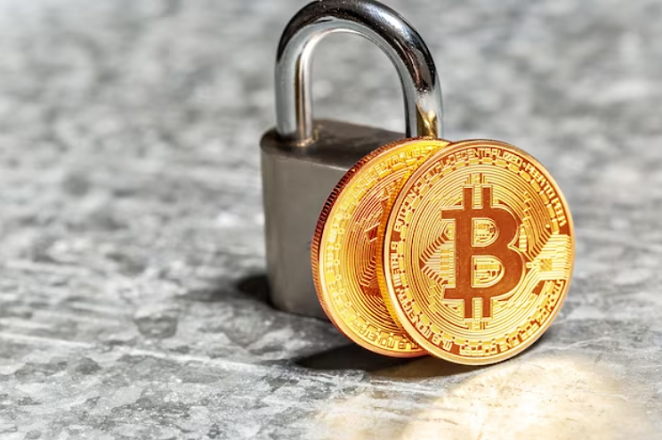It’s easy to understand why cryptocurrency has become so popular. Due to their decentralised and safe nature, cryptocurrencies like Bitcoin, Ethereum, and Litecoin have significantly increased in popularity in recent years. These digital assets are an enticing replacement for conventional forms of currency because they are not backed by any government or financial organisation. But immense power also entails great responsibility. Understanding why cryptocurrency security is so important is essential.
Let’s simply define cryptocurrencies to start. It’s a digital asset created to function as a means of exchange, to put it simply. It controls the generation of new units and employs cryptography to safeguard and verify transactions. Cryptocurrency is a decentralised currency that isn’t influenced by the government because it functions without a central bank. Due to the various advantages it provides, including minimal transaction costs, quick transactions, and a high level of security, its popularity has increased substantially in recent years.
But despite all of the advantages of cryptocurrencies, security issues are a major worry. Because cryptocurrencies are decentralised, they are appealing to scammers and hackers who are constantly looking for methods to exploit weak points in the system. Because of this, it’s essential for cryptocurrency users to take extra security measures to safeguard their investments. We’ll discuss the significance of cryptocurrency security in this blog article and provide you the knowledge you need to safeguard your digital assets.
Security of Cryptocurrencies Overview
Cryptocurrency security comprises a variety of precautions and best practises aimed at protecting digital assets from fraud, theft, and unauthorised access. It requires adopting security mechanisms including two-factor authentication and cold storage, as well as protecting private keys, which are required to access bitcoin wallets.
Cryptocurrency has a lot of advantages, but because it is unregulated and decentralised, it is also subject to security risks. Because there is no centralised authority, there is no safety net to guard users against hackers, phishing, and other forms of cyberattacks. Users of cryptocurrencies must therefore be much more vigilant about staying informed and taking preventative measures to safeguard their assets. Protecting bitcoin investments requires being aware of potential security issues and putting strong protection measures in place.
Security Threats to Cryptocurrencies
Users of cryptocurrencies need to be aware of a number of typical security risks, such as malware, phishing, and hacker attacks. Unauthorised entry into cryptocurrency wallets through hacking can lead to the theft of digital assets. Phishing attacks, on the other hand, use phoney emails or websites to deceive users into disclosing their private keys or other critical information. Malware can be used to infect a user’s laptop or smartphone, giving attackers access to wallets and the ability to steal private keys.
These dangers may significantly affect both specific users and the entire cryptocurrency market. Users may suffer financial losses as a result of the loss of digital assets, and frequent security flaws may reduce public confidence in the cryptocurrency industry as a whole. Users must therefore take proactive measures to defend themselves against these dangers, including as using secure wallets, turning on two-factor authentication, and being on the lookout for phishing scams.
Measures for Securing Cryptocurrencies
Cryptocurrency users have a number of security options at their disposal to safeguard their digital assets. Utilising a secure wallet, which saves private keys and enables safe and simple access to cryptocurrency funds, is one of the most important tasks. An additional efficient security precaution that can aid in preventing unauthorised access to accounts is two-factor authentication, which necessitates a second form of verification in addition to a password. Other precautions include staying away from public Wi-Fi networks, keeping antivirus software and software up to date, and using complicated passwords.
Utilising these security measures is crucial since cryptocurrency is prone to assaults due to its decentralised nature. By putting these precautions into place, you can protect your digital assets and avoid suffering damages from theft or hacking. Users of cryptocurrencies must therefore exercise caution and take the appropriate precautions to safeguard their investments.
American legal and regulatory environment for cryptocurrency security
The US legal and regulatory environment for cryptocurrency security is complicated and ever-changing. The Securities and Exchange Commission (SEC) and the Financial Crimes Enforcement Network (FinCEN) have both issued rules and regulations pertaining to the security of digital assets as part of the US government’s active regulation of cryptocurrencies. Although the legal structure strives to safeguard investors and prevent fraud, it can provide difficulties for companies engaged in the bitcoin industry.
The SEC’s crackdown on unregistered initial coin offerings (ICOs) and greater inspection of cryptocurrency exchanges are recent developments in the regulation of cryptocurrency security. Additionally, MPs have put forth measures to establish a national regulatory framework for digital assets and to clarify the taxation of cryptocurrencies. It’s possible that additional regulatory measures will be required as the cryptocurrency market continues to expand and change in order to maintain the ecosystem’s stability and security.
Future of Security for Cryptocurrencies
Technology breakthroughs and legislative changes are likely to work together to improve bitcoin security in the USA. More complex security measures, such biometric verification and advanced encryption methods, will be required as the value of digital assets rises. Additionally, because it enables secure and open record-keeping, blockchain technology itself may be leveraged to increase Bitcoin security.
But when the bitcoin industry develops further, additional security risks are probably to appear. In order to safeguard investors and stop fraud, regulatory organisations must continue to be aggressive and watchful. Overall, technological advancement, governmental regulation, and user awareness will all play a role in the security of cryptocurrencies in the future.
Conclusion
All bitcoin users need to be knowledgeable about the critical subject of cryptocurrency security. Digital assets are becoming more and more valuable, and this has increased the demand for strong security measures. Users of cryptocurrencies need to be aware of a number of typical security risks, such as malware, phishing, and hacker attacks. Users can take security precautions like utilising encrypted wallets, turning on two-factor authentication, and avoiding open Wi-Fi networks to protect themselves.
Furthermore, as organisations like the SEC and FinCEN issue rules and regulations to safeguard investors and stop fraud, the legal and regulatory environment surrounding bitcoin security is always changing. It is anticipated that additional regulatory measures will be required as the cryptocurrency market expands in order to maintain the ecosystem’s stability and security.
Overall, technological advancement, governmental regulation, and user awareness will all play a role in the security of cryptocurrencies in the future. Users can contribute to ensuring the long-term survival and success of the bitcoin ecosystem by taking proactive measures to safeguard their digital assets.
Read More You May Like:
- Crypto Security 101 Tips for Securing Your Digital Assets
- Fortifying Your Crypto Fortress The Latest Security Measures
- How to Keep Your Cryptocurrency Safe from Cyberattacks
- Keeping Your Cryptocurrency Safe Best Security Practices
- Protecting Your Investments The Ultimate Guide to Cryptocurrency Security














Post Comment